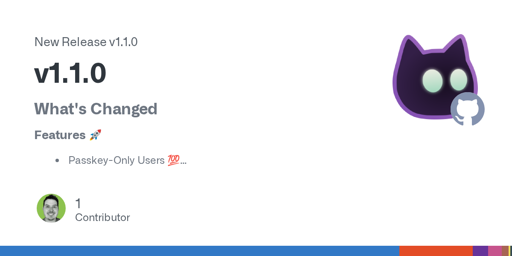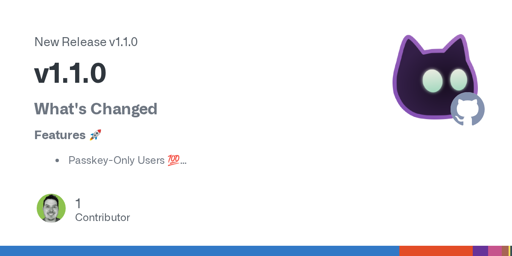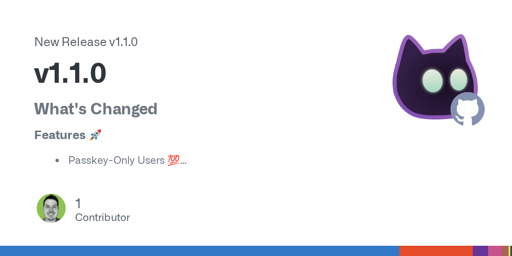- 5 Posts
- 13 Comments
You can try VoidAuth, it is kinda similar to Authelia+lldap. I am the developer and I created it because I wasn’t satisfied with Authelia’s user management. If you decide you want to try it and run into any issues or questions I will try to help :)

 2·1 个月前
2·1 个月前I don’t think you could do that directly in the Caddyfile, but you can create those groups/policies inside VoidAuth and assign them to users there.
The steps would be to (in VoidAuth) create the access group/policy, create the ProxyAuth Domain (protected.example.com/*) with the allowed group(s), make sure the user(s) have that group, then in Caddy add the forward_auth directive to the same route you want to protect.
Then when you go to access that route in a browser it will redirect you to VoidAuth login, or if you pass an Authentication header with Basic Auth (like when using an API) it will use that.

 2·2 个月前
2·2 个月前You can do this with VoidAuth as well, by setting the DB_NAME variable

 5·2 个月前
5·2 个月前VoidAuth is simpler to setup/use than Authentik for sure, but of course Authentik has more features. They both support proxy-auth, OIDC, and have user management UIs so in that way they are similar. I like VoidAuth for its simplicity but you can always run both and decide, if you have any questions about setup I will try to answer!

 3·2 个月前
3·2 个月前If you run into any issue during setup let me know! I am still working on the documentation so hopefully it is somewhat understandable 😆

 14·2 个月前
14·2 个月前I will make an issue for adding SQLite support, it has been on my mind for the same reasons. I would say don’t let the Postgres requirement stop you from trying it out. Modern hardware really doesn’t mind having multiple containerized postgresdb instances running, it can be very lightweight when idle.

 152·2 个月前
152·2 个月前I would not recommend using VoidAuth to anyone who needs to be any kind of security compliant. I am not a security professional and am using packages for the OIDC and other security heavy-lifting. I can recommend VoidAuth for those just looking for a simple but good looking auth app for securing their own selfhosted apps and resources.

 29·2 个月前
29·2 个月前I do agree. I have been thinking about adding a SQLite option which should be somewhat easy since knex (the database package that VoidAuth uses) supports it. Before releasing that I would want to create some way to migrate your data from one database type to another. If you want to use VoidAuth feel free to make an issue for this!

 3·2 个月前
3·2 个月前Let me know how it goes!

 3·2 个月前
3·2 个月前While I haven’t spun up Keycloak myself, I think VoidAuth would supply some similar functionality. Ideally the features of Keycloak that you are likely to need but easier to setup and use!







Pretty much as answered already, passkeys (sometimes branded like FaceID or Windows Hello but it is an open spec) are an alternative to passwords. Your public key that identifies your user is stored in VoidAuth and your private key is stored on your device. Some password managers support syncing passkeys, so you don’t have to set up a new passkey on every device.
The advantage over passwords is that they are domain and device specific, so are much harder to be leaked from the client side. VoidAuth (or other services) should only be storing your public key so a leak on the server side would not allow someone to log in as you.